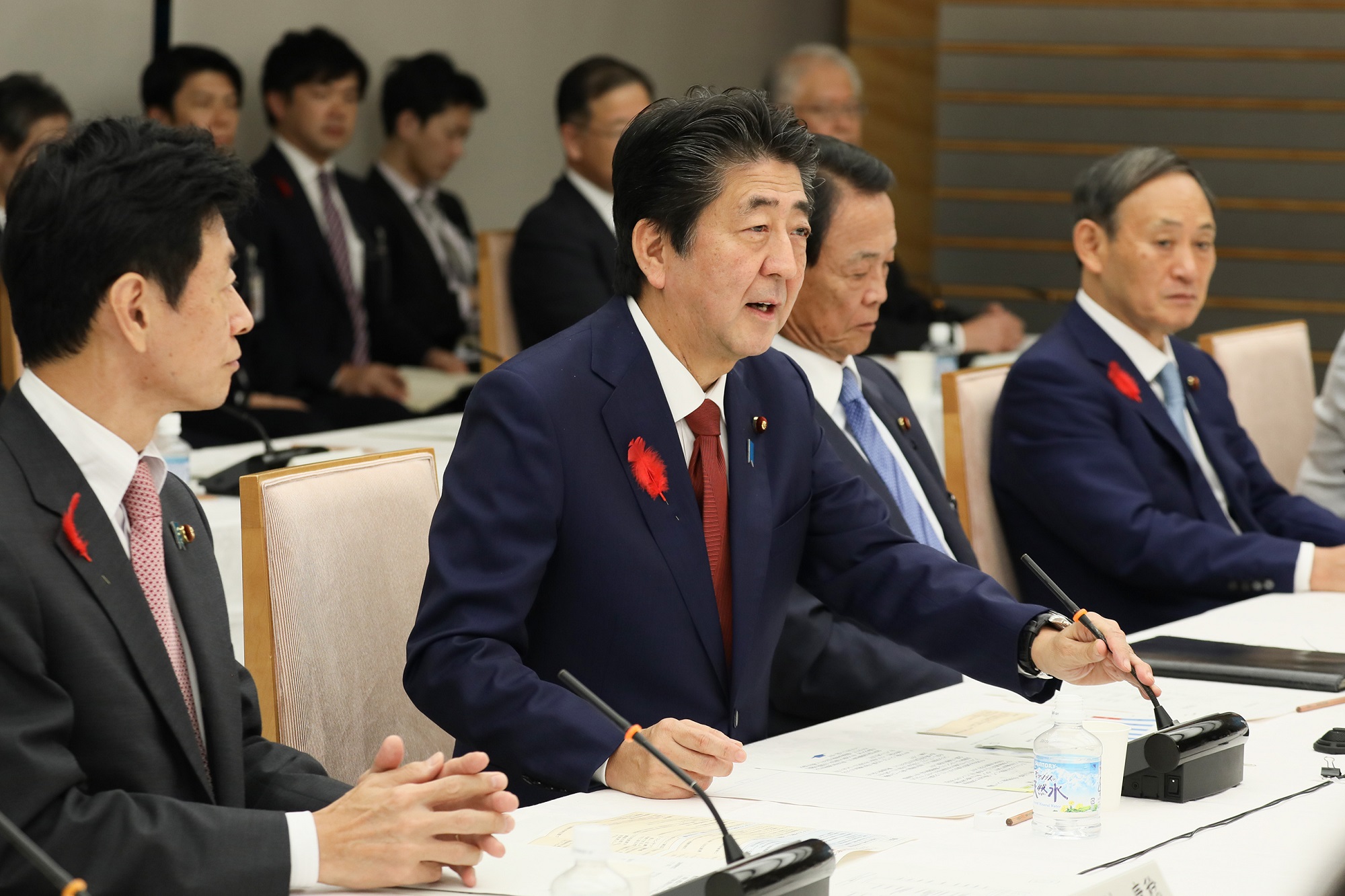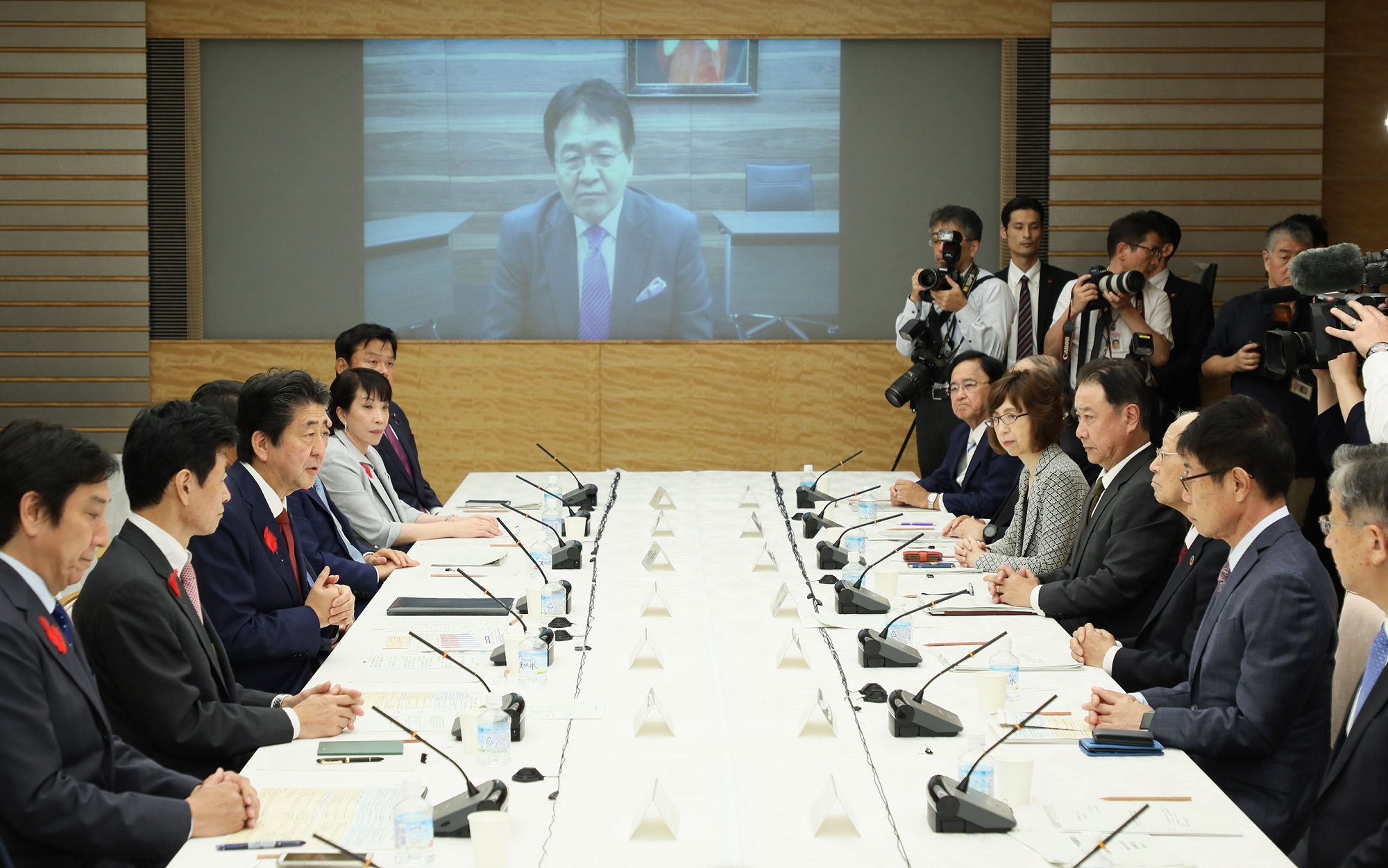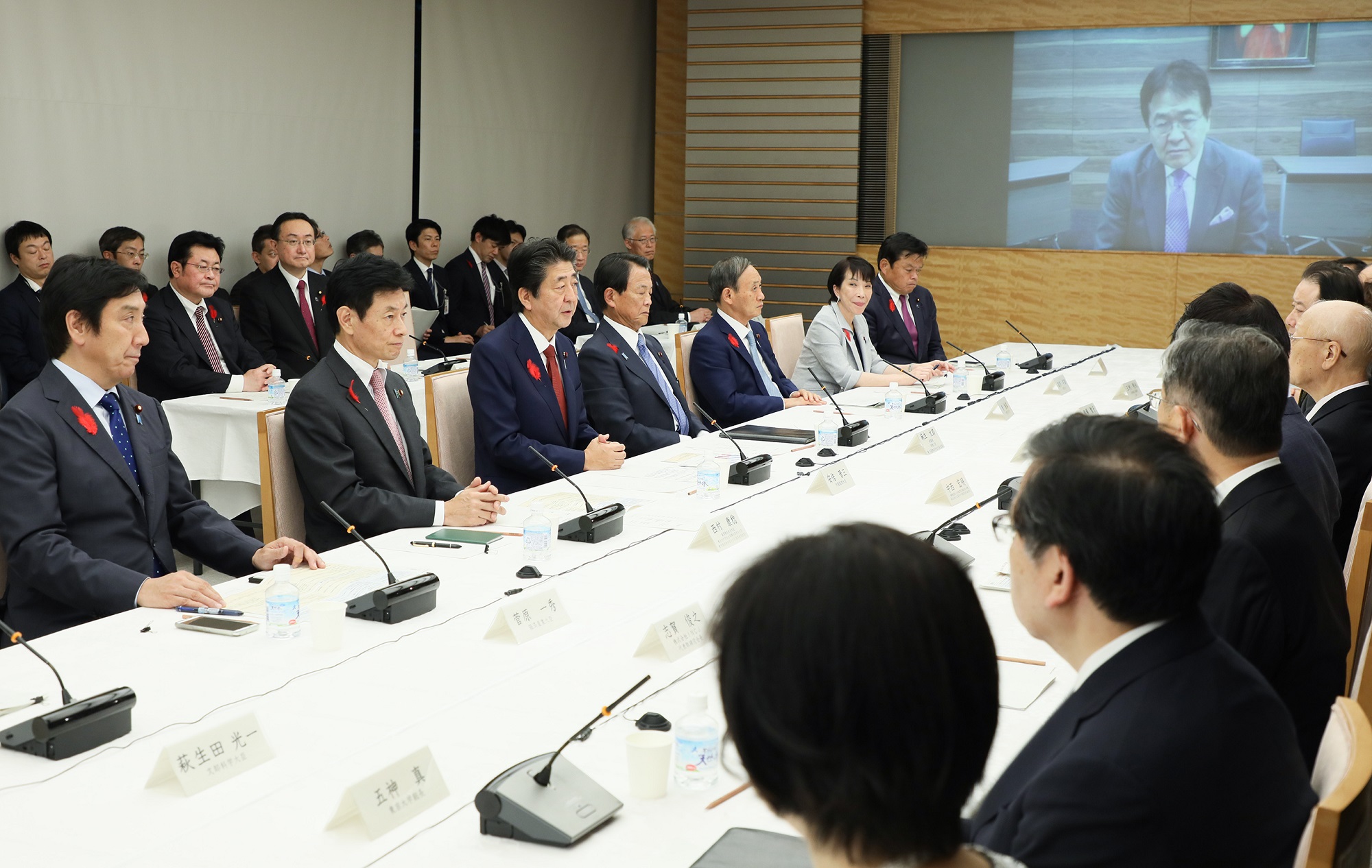Home > News > The Prime Minister in Action > October 2019 > Council on Investments for the Future
The Prime Minister in Action
Council on Investments for the Future
October 3, 2019
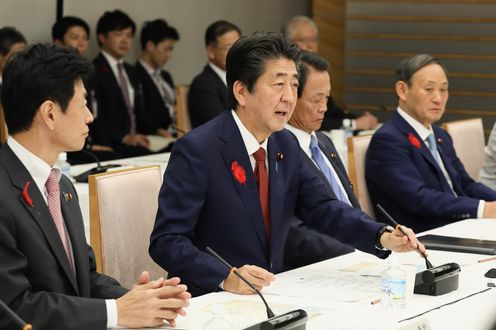
Photograph of the Prime Minister making a statement (1)
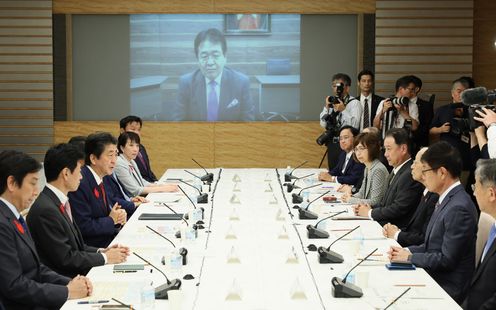
Photograph of the Prime Minister making a statement (2)
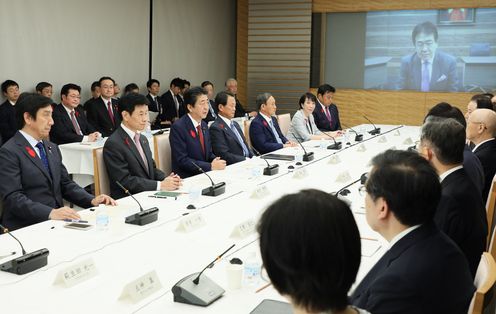
Photograph of the Prime Minister making a statement (3)
[Provisional Translation]
On October 3, 2019, Prime Minister Shinzo Abe held the 31st meeting of the Council on Investments for the Future at the Prime Minister’s Office.
At the meeting, a discussion was held on promoting the investment of company’s internal operational resources into new fields, as well as the development of rules for the digital market and the refinement of future regulations.
Based on the discussion, the Prime Minister said,
“Tomorrow, the Diet will start its extraordinary session and this marks the 200th session. I would like to make this Diet debate forward-looking and befitting to the 200th session. I intend for my Government to respond thoroughly in the Diet debate and hope that the Diet members make all-out efforts in the deliberations.
Today, we first discussed the promotion of investments in new fields. As a result of Abenomics, for instance, the amount of cash deposits in the household sector has grown by 112 trillion yen and reached a total of 979 trillion yen. As Mr. Sakurada shared his analysis on internal reserves just before, the cash deposits of the corporate sector have also risen by 50 trillion yen and reached a total of 240 trillion yen. Amidst the 50 trillion increase in cash deposits, the efforts to make investments with a long-term perspective such as R&D in new fields will determine the course of Japan’s future. We intend to create an environment through support measures and by making rules such that ambitious incumbent companies can merge with or acquire startups or conduct joint research with them. We will also promote collaboration with companies in emerging countries. Through these initiatives, we would like to encourage the development of new products and services, which are unique, and improve the markup rates. I would like to ask Minister in Charge of Economic Revitalization Nishimura and other relevant ministers for your understanding and support. Regarding small- to medium-sized enterprises (SMEs), we intend to further analyze the structure of their business relations with large enterprises, and propose a framework of transaction rules that enables both SMEs and large enterprises to grow together. Even for the social security reform to one that is oriented to all generations, the support measures for the SMEs’ efforts to improve productivity are essential in order to expand the enrollment in the welfare pension and other initiatives. I would like Minister of Economy, Trade and Industry Sugawara to take the lead in proceeding with reviews. We will compile the interim report by the end of the year and make a Cabinet decision on the new action plan by the summer of 2020.
Afterwards, we held discussions on the regulatory reforms in the age of the fourth industrial revolution. Thanks to the advancements of big data analysis using AI, the possibility of building a regulatory system that does not depend on a one-size-fits-all approach is expanding. To this end, we will start our review on the future of the regulations centered on the three fields of mobility, financial services and construction from mid- and long-term perspectives. We intend to proceed with our review by establishing a specialized working group under this Council and ask Minister in Charge of Economic Revitalization Nishimura as well as Minister of State for Financial Services Aso and Minister of Land, Infrastructure and Transport Akaba for your cooperation on this process.”

